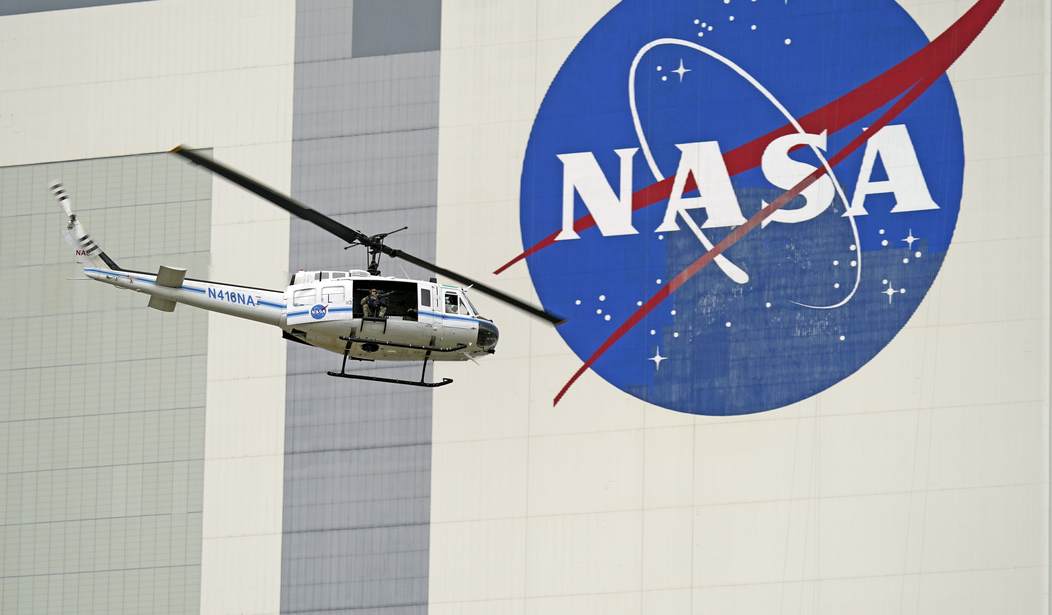Ever since Congress got the ball rolling on the investigation of UFOs and established the new horribly-named AOIMSG office, other government agencies have slowly but surely moved toward cooperating in these efforts. The latest to join the party is NASA, arguably one of the best-suited agencies in terms of possessing the technology to see what might be “out there.” On Thursday, NASA announced that they will soon be launching a program wherein they will comb through their mountains of telescopic and sensor data to find out if they may have recorded anything anomalous that should be brought to the attention of the new UFO investigatory office. The initial program will run for nine months, with extensions being possible if the results are promising. So will traditional scientists scoff at using NASA’s vast scientific resources in such a pursuit? Perhaps. But the agency’s science mission chief isn’t worrying about any “reputational risk.” (Associated Press)
NASA is launching a study of UFOs as part of a new push toward high-risk, high-impact science.
The space agency announced Thursday that it’s setting up an independent team to see how much information is publicly available on the matter and how much more is needed to understand the unexplained sightings. The experts will also consider how best to use all this information in the future.
NASA’s science mission chief, Thomas Zurbuchen acknowledged the traditional scientific community may see NASA as “kind of selling out” by venturing into the controversial topic, but he strongly disagrees.
The full quote from Thomas Zurbuchen was, “We are not shying away from reputational risk. Our strong belief is that the biggest challenge of these phenomena is that it’s a data-poor field.”
Another welcome feature of the NASA program, at least for UAP subject enthusiasts, is that they will be using no classified military data. Everything they are doing will be open to the public for comment or even participation.
This makes perfect sense. When it comes to finding out about things moving about above us, no government agency is better positioned than NASA. They are constantly looking upward and watching the stars, the planets, asteroids, and anything else they run across. Their telescopes and satellites look not only into space but also back down into the earth’s atmosphere. They have mountains of data that can be examined in new ways with an eye toward identifying anything that looks out of place.
Imagine what might be lurking in NASA’s backlogs of photos and other data. They could have been sitting on any number of pertinent discoveries for ages without anyone realizing it was there because it didn’t fit in with the specific cosmological phenomenon they were attempting to study. They can make any pertinent data they may come across available to the AOIMSG (which hopefully will have a new name in the coming weeks) and to the public as well. And for once, the Pentagon won’t be able to slap a Top Secret classification on it. Remember… nobody can classify the skies and everyone is free to look at them.
The next thing to keep an eye on should be another anticipated round of public hearings on UFOs, most likely in the Senate as Congress returns from its most recent break. You can expect Democratic Senator Kirsten Gillibrand and Republican Marco Rubio to once again be teaming up to demand both answers and action. The AOIMSG will hopefully be required to provide new and better-informed witnesses to testify under oath.
With luck, the issue of possible immunity or amnesty for whistleblowers will be addressed. Also, it would be good for the Senate and the public to hear sworn testimony from some of the people who have actually encountered these phenomena and are familiar with the subject matter. The first two witnesses featured during the House hearings were sorely lacking in such background and knowledge.









Join the conversation as a VIP Member